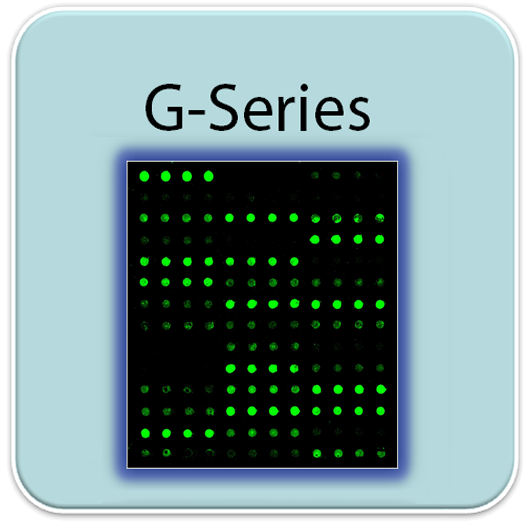G-Series Human Cytokine Array 440 Kit. A combination of 11 non-overlapping arrays to measure the relative expression levels of 440 human cytokines. Suitable for all liquid sample types.
Product Description
Specifications
| Size | 16 Sample Kit, 32 Sample Kit, 64 Sample Kit |
|---|---|
| Species | Human |
| Quantitative/Semi-Quantitative | Semi-Quantitative |
| Number of Targets Detected | 440 |
| Compatible Sample Types | Cell Culture Supernatants, Plasma, Serum, Tissue Lysates, Cell Lysates |
| Solid Support | Glass Slide |
| Method Of Detection | Fluorescence Laser Scanner |
| Design Principle | Sandwich-based |
| Shipping Type | Blue ice |

Amazon Gift Cards!
$5 Amazon gift card in every kit box purchased.
Gao T, Zhao R, Yao L, Xu C, Cong Q, Jiang W. Platelet-activating factor induces the stemness of ovarian cancer cells via the PAF/PAFR signaling pathway. Am J Transl Res. 2020 Nov 15;12(11):7249-7261. PMID: 33312364; PMCID: PMC7724322.
Species:
Human
Sample Type:
Cell Lysate
Zhang JS, Da Wang J, Zhu GY, Li J, Xiong Y, Yusufu M, He HL, Sun XL, Ju T, Tao Y, He SZ, Wan XH. The expression of cytokines in aqueous humor of high myopic patients with cataracts. Mol Vis. 2020 Mar 5;26:150-157. PMID: 32180680; PMCID: PMC7058430.
Species:
Rat
Sample Type:
aqueous humor (High Myopic patient)
Write Your Own Review

